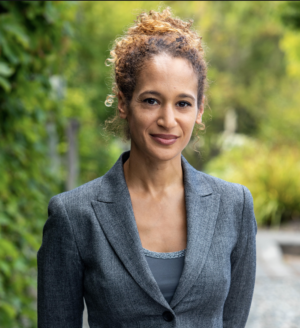Why a Foster PhD: Giselle Antoine, Organizational Behavior track
 Guest post by Giselle Antoine, UW PhD in Organizational Behavior
Guest post by Giselle Antoine, UW PhD in Organizational Behavior
First Placement: Washington University in St. Louis (Olin Business School)
Current Placement: Washington University in St. Louis (Olin Business School)
One of the strongest features of the Foster PhD Program is the M&O faculty. As individuals, they are among the most prolific, creative, and industrious people I know. As a group, they are a powerhouse. When the faculty convenes for a student (or faculty) presentation, the caliber of feedback provided to the presenter is comprehensive and dynamic. Watching all their minds work collectively to was kind of like witnessing magic. From working with the group, I learned that feedback isn’t about nit-picking mistakes, but bringing scholarship to its highest form.
One major strength of the program is the variety of research interests and approaches to research among the faculty. In many ways, the department is a survey in the myriad ways one could be successful in our career. This feature of the program is essential because there is much to learn from each faculty, but ultimately you have to develop into your own researcher. The structure of the Foster M&O PhD program allows you to take the best from each faculty in defining your own research identity.
Another strength of the program is the faculty’s availability and willingness to provide support. In some PhD programs, faculty can be difficult to access. Meanwhile, at Foster, I always heard back from faculty within 24 hours, often sooner, and even from faculty who weren’t my coauthors, on my dissertation committee, or even in my research area. You get the feeling that every faculty member wants to see you succeed, and they are all willing to provide whatever support you need to become the best professional version of yourself. Also, because UW is a large state school, you benefit from being able to take coursework in other departments. I found courses in the Sociology School and the Center for Statistics in the Social Sciences extremely useful in developing my statistical skills. Their faculty were also highly responsive and eager to help.
Finally, in addition to feeling thoroughly supported as a developing researcher, I also felt sincerely cared about as a person and colleague. My PhD program overlapped the pandemic, which was a time when many experienced personal hardships that made work productivity a challenge. During that period, many faculty offered support in ways that extended beyond the PhD mentor-mentee relationship, and reminded me that ultimately the department cared about seeing me not only as a successful scholar, but as one who is happy and healthy too.
